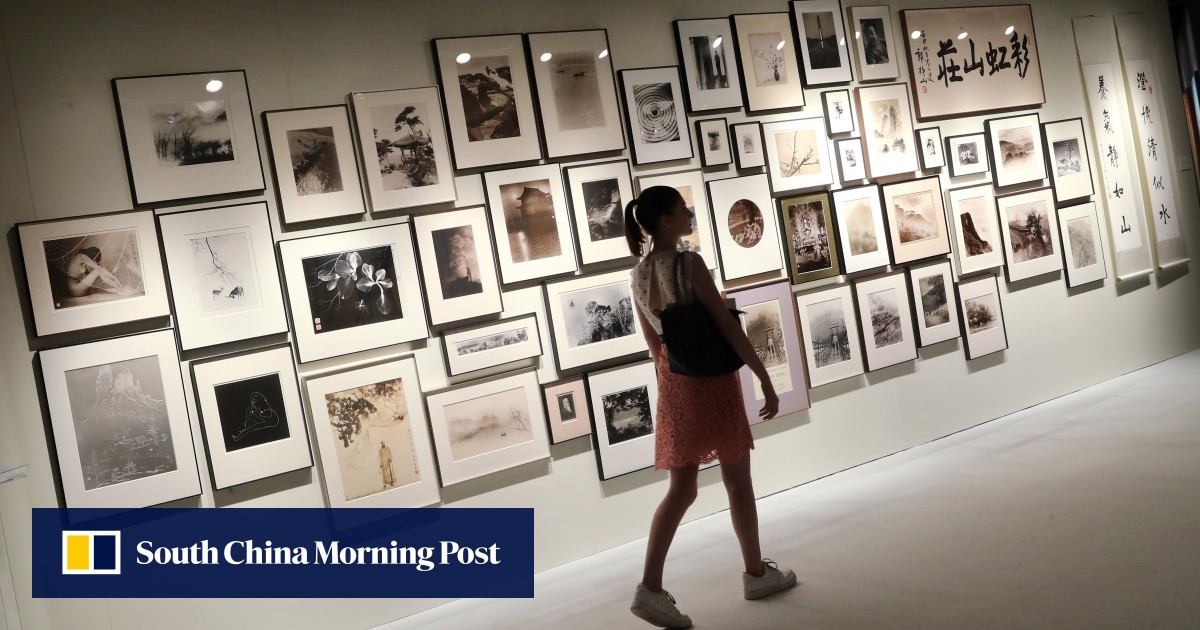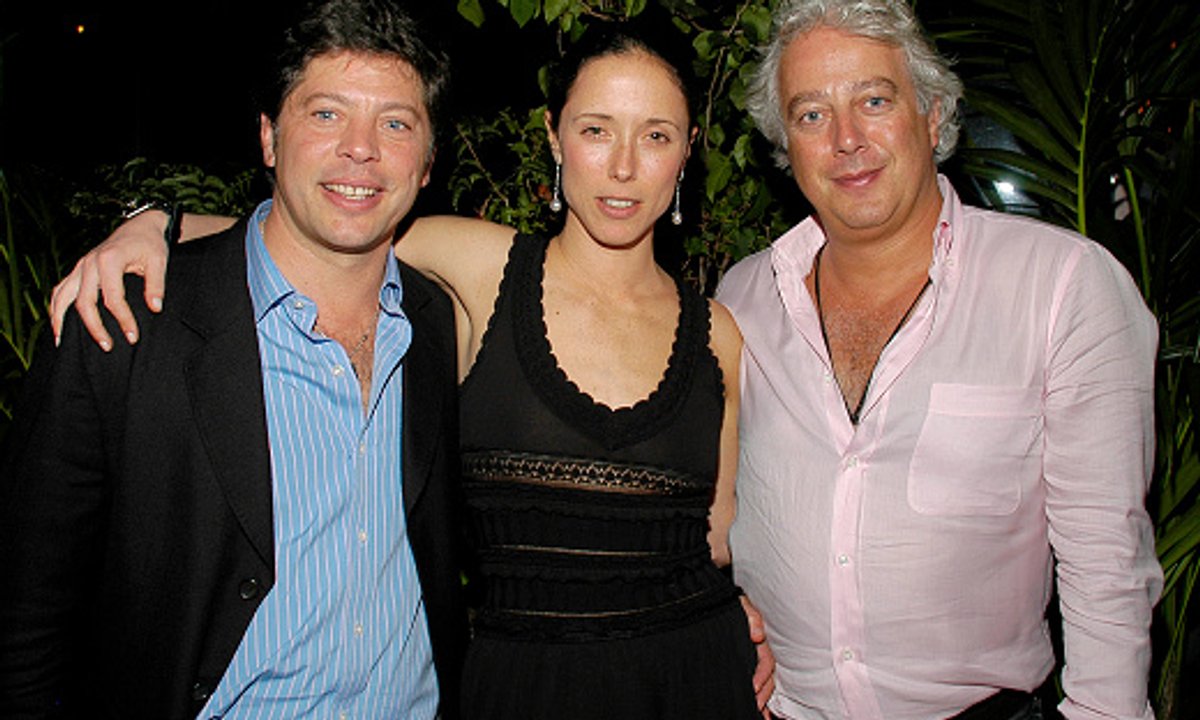The Ecdysiast - Molt (Body Inspection)
2017 - Film & Video (Film & Video)
9:00 minutes
Yao Qingmei
Satirizing an airport security checkpoint, The Ecdysiast – Molt (Body Inspection) by Yao Qingmei offers a comedic and critical inquiry into the logics underpinning collective control and surveillance culture. The three channels of the video respectively feature a dancer (left), a chorus (middle), and a security inspector (right). The dancer and security inspector enact a mechanical burlesque performance that parodies the body inspection procedures implemented by airport security. Simultaneously, they are observed by an elegantly-dressed opera choir that acts as a Greek chorus. As powerful jurors, the choir speaks in the perspective of a god, passing judgments on the woman, the inspector, and the invisible crowd, but also behaving as unruly spectators. Through singing, their narration appropriates literary and philosophical terms such as “big brother”, “Leviathan”, “abyss”, “Homo sacer” and “panopticon”, building a lexicon around security infrastructure. In the gaps between dance and music, long passages of stillness and silence emerge, during which viewers are surveilled by the persistent gaze of the female dancer, the inspectors, and the chorus. The theatricality of Yao’s video calls attention to the absurdity of security and control protocols. But it also reveals the cultural indifference towards the tacit acceptance of subjugation enforced by the increasingly routine nature of surveillance culture. About the work, Yao writes that the security checkpoint is supported by a logic of forced compliance, so indelible to daily life that its violence has become imperceptible. Portrayed as necessary safety measures, apparatuses such as security checkpoints may appear harmless. However, they are part of a larger infrastructure of collective control and policing that function in spaces where authority dynamics are ambiguous, such as airports, schools, shopping centers, and government organizations. The asymmetrical power relations that play out in these institutions undermine the individual’s agency and right to privacy. By satirzing security procedures, Yao’s work subverts these paradigms and proposes what she describes as “a new form of play”.
Informed by her long-term interest in the complex tensions between music, dance, text, and video, Yao Qingmei’s practice collapses the boundary between performance and its site. Her practice is rooted in a critical reflection into the formulation of political and social questions, exploring how symbolic gestures gain or lose power through forms of appropriation and displacement. Humor plays an important role in her work, and she uses the poetics of comedy to expose the absurdity of a particular issue. Offering different methods of resistance, her video works, theatrical performances and interventions incorporate burlesque traditions of satire and parody. They often incorporate framing devices influenced by theatre sets and costume, pedagogical lectures, the dialectic between image and text, and choreography inspired by modern dance.
Colors:
Related works sharing similar palette
» see more

© » KADIST
Robert Zhao Renhui
2012Changi, Singapore, possibly 1970s is from the series “As We Walked on Water” (2010-2012), which looks into Singapore’s history around the phenomenon of land reclamation...
Related works found in the same semantic group
» see more

© » ARTS EQUATOR
Go Big or Go Home: “Displaced Persons’ Welcome Dinner” Takes Flight | ArtsEquator Thinking and Talking about Arts and Culture in Southeast Asia Articles Courtesy of Checkpoint Theatre June 7, 2019 By Helmi Yusof (1,387 words, six-minute read) Why do people choose to go into poor, dangerous, war-torn countries to work as humanitarian workers? Do they have boundless courage, hope and kindness? Do they have a death wish? Do they believe they can make a difference? Are they simply naïve? Do they suffer from a messiah complex? Or First World guilt? Did their countries once colonise other countries? Are they cynical about humanity? How do these women and men, who mostly come from the developed world, deal with privation – if not quite experiencing it directly, then at least witnessing it firsthand? At what point does their idealism get crushed by bureaucracy, the constraints of their organisations, their own limitations? As a participant of the inaugural Asian Arts Media Roundtable organised by ArtsEquator, I got to watch and share my thoughts with over 20 arts critics and members of the public at Critics Live, a post-show dialogue of Checkpoint Theatre’s Displaced Persons’ Welcome Dinner , a play that sheds light on the fallibility of humanitarian aid workers...

© » KADIST
Zarina Bhimji
2001Born in Uganda of Indian descent, Bhimji has lived in London after her family sought refuge from the regime of Idi Amin who compulsorily expelled all Asians from Uganda...

© » KQED
The Bay Area’s Famous ‘Pinay Pie Lady’ Gears Up for One Last Christmas Bake Sale | KQED Skip to Nav Skip to Main Skip to Footer Food The Bay Area’s Famous ‘Pinay Pie Lady’ Gears Up for One Last Christmas Bake Sale Luke Tsai Dec 1 Save Article Save Article Failed to save article Please try again Facebook Share-FB Twitter Share-Twitter Email Share-Email Copy Link Copy Link Sweet Condesa's bibingka pie is inspired by a kind of coconut rice cake that's traditionally eaten for Christmas in the Philippines...




